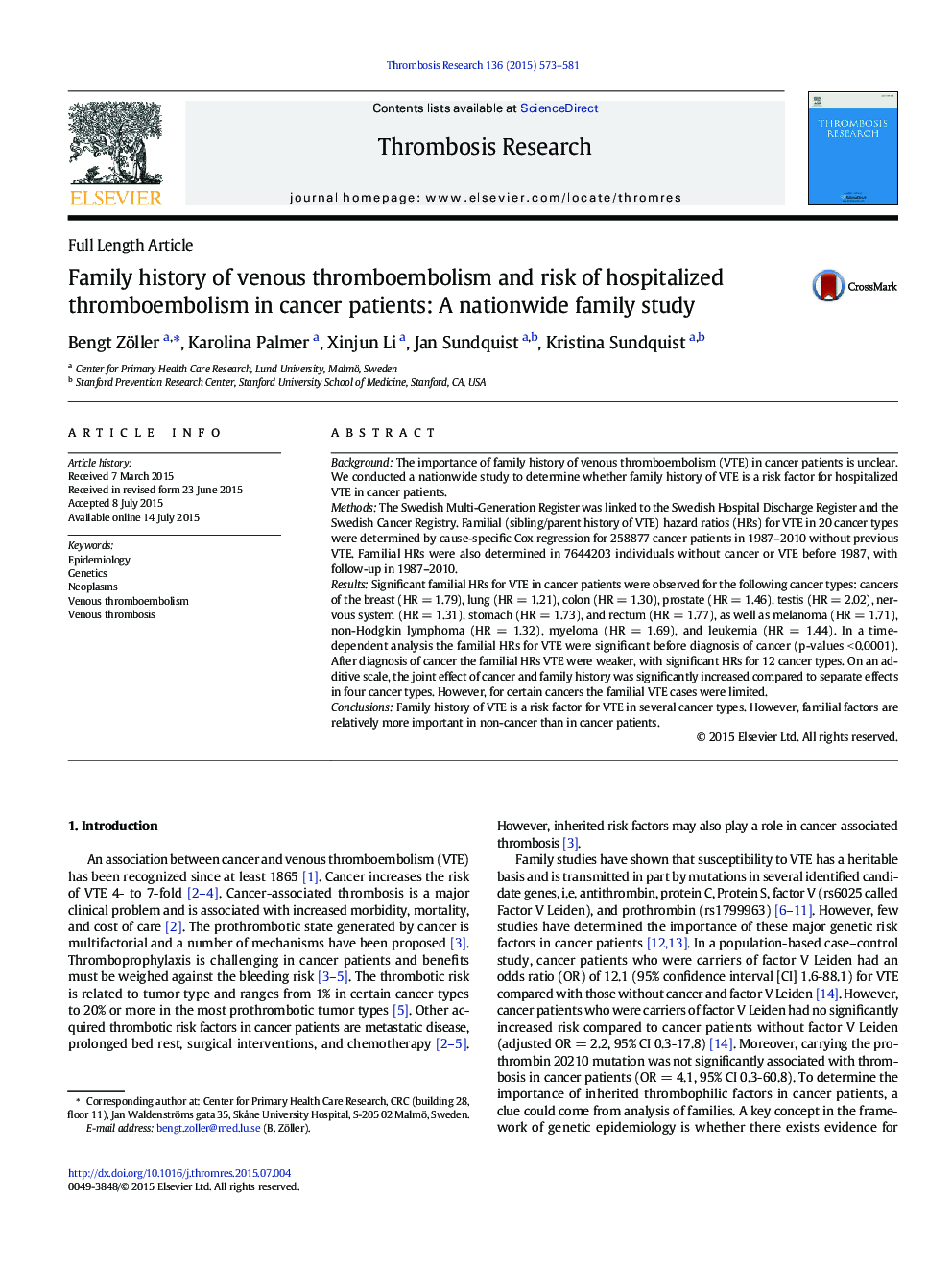| کد مقاله | کد نشریه | سال انتشار | مقاله انگلیسی | نسخه تمام متن |
|---|---|---|---|---|
| 3027070 | 1182938 | 2015 | 9 صفحه PDF | دانلود رایگان |
• The importance of family history of venous thromboembolism (VTE) in cancer patients is unclear.
• The study is a nationwide Swedish family study of VTE risk in 258877 cancer patients.
• Familial hazard ratios were determined for VTE in 20 cancer types.
• Family history of VTE is a risk factor for VTE in several cancer types.
• Familial factors are relatively more important in non-cancer than in cancer patients.
BackgroundThe importance of family history of venous thromboembolism (VTE) in cancer patients is unclear. We conducted a nationwide study to determine whether family history of VTE is a risk factor for hospitalized VTE in cancer patients.MethodsThe Swedish Multi-Generation Register was linked to the Swedish Hospital Discharge Register and the Swedish Cancer Registry. Familial (sibling/parent history of VTE) hazard ratios (HRs) for VTE in 20 cancer types were determined by cause-specific Cox regression for 258877 cancer patients in 1987–2010 without previous VTE. Familial HRs were also determined in 7644203 individuals without cancer or VTE before 1987, with follow-up in 1987–2010.ResultsSignificant familial HRs for VTE in cancer patients were observed for the following cancer types: cancers of the breast (HR = 1.79), lung (HR = 1.21), colon (HR = 1.30), prostate (HR = 1.46), testis (HR = 2.02), nervous system (HR = 1.31), stomach (HR = 1.73), and rectum (HR = 1.77), as well as melanoma (HR = 1.71), non-Hodgkin lymphoma (HR = 1.32), myeloma (HR = 1.69), and leukemia (HR = 1.44). In a time-dependent analysis the familial HRs for VTE were significant before diagnosis of cancer (p-values < 0.0001). After diagnosis of cancer the familial HRs VTE were weaker, with significant HRs for 12 cancer types. On an additive scale, the joint effect of cancer and family history was significantly increased compared to separate effects in four cancer types. However, for certain cancers the familial VTE cases were limited.ConclusionsFamily history of VTE is a risk factor for VTE in several cancer types. However, familial factors are relatively more important in non-cancer than in cancer patients.
Journal: Thrombosis Research - Volume 136, Issue 3, September 2015, Pages 573–581
